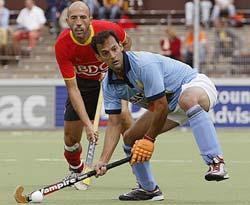Highlight of the day has to be the session that I took at IMS. They wanted someone to work with MBA aspirants and make them understand the nuances of things that happen during the GD phase of the selection process.
This was after a while I was doing something like that. And I came home with a few things. Here’s a list. In no order, as always…
A. Realisation that I suck at public speaking. I would want to believe that I am good at it. But I am not. I do have a speech impediment – I stutter, speak fast, gobble up words, have a nasal voice. Thankfully, all these can be worked on.
The things that are tougher to work on, confidence, presence, ability to structure thoughts – I have those. So, nothing to worry about. Need practise. Thats about it!
B. The “proud” and “popular” decision that I took to NOT read newspapers and consume just the online pieces, its backfiring.
Why? Because when I was reading newspapers, I was getting something in my head (howsoever crappy, biased, inaccurate it were). On the other hand, when I consume stuff online, I often get lost in the forest full of trees of knowledge. And the way I consume new information, I tend to look at just the highlights and not the details. I am doing what Feynman says is knowing the name of something. And honestly, I dont know how to fix this.
While reading online is great, I can choose what I want to read on. So, most of what I know tends to be from one of my favorite buckets – startups, decision making, evolution, human behaviour, business, investing, cultures etc. Now as a social animal, I need lot more than these disciplines. And thus, more.
Also, lately I have been thinking about reading. When I say reading, there is books, there’s blogs, there is newspapers and there is reading for business – industry reports, opinions etc.
Lemme talk of books first. There are three distinct ways in which I hope to read to learn from books.
- First, I am becoming convinced that reading entire books (for learning) may not be the most efficient method. Like Naval said in a recent podcast, most books have one or two points to make and then they use 300 pages to drive home that one point. I can do better by reading book summaries and other such things. Bastardised form of learning but I am ok with it. So, books like Blink, Influence etc. would fall under this category. In fact thanks to platforms like TED, Youtube and podcasts, you can watch a 18-min video and you would have consumed the entire book. Or you download a 30-min podcast on your phone and as you reach your office, you would know about a new thing!
- Second, when you read about lives of great people – thats something I ought to continue doing. When you read a biography, you are not just learning from the lives they lives, you are also living their lives with them, seeing what decisions they made and how they made those decisions. The best part? You have the advantage of the hindsight!
- Third, there are few exceptional non-fictional books that pack more points than one. Case in point? The one that I am reading right now – Sapiens. The other such book that I immensely enjoyed is Tools of Titans. Its essentially a “listicle” 2.0 book (list of lists), it had lists of things, daily habits and other such things from some of the most successful people. Such books ought to be read cover to cover.
C. Retention. While I was taking the session today I realised that I dont retain much from what I read. I had the same realisation the last night when I was at a friends place and we were talking about impact of technology on traditional walled-gardens like banking. I have read about the subject in detail but I could not recall specifics. And its not a cool thing.
In fact I’ve spotted this trend lately. Little signs that I am growing old. It’s exactly like they said it would be. Creeping over slowly, imperceptibly as I am busy with my day to day life.
So, I need to work harder onto undo-ing these things. One way is to write. Because, I have noticed that I tend to retain things that I write. Ok, digressing. And not to forget, other things that old age inflict upon us.
D. Handwriting. My handwriting sucks so bad its not funny. While taking the session at IMS, I made notes and when I had to give feedback, I could not read what I had written! Poor students.
But then, its something that I am sure I dont want to work on. Let the handwriting go down the drain for all I care. While I love the feel of pen on paper and on whiteboards, I continue to be a fan of typing (on an Apple keyboard ofcourse), unless they come up with a new way to capture thoughts.
E. In the end, I loved spending time with students. I was in the zone.
I would love to do it lot more – with other MBA aspirants. And students in general. I am not sure if I have a lot to contribute but I do have a lot to learn. About myself. About the world. And the ideas that these young ones have.
Need to figure out a way to do so. May be pick 5 students, work with them through the year and prepare them for this? Seth Godin did something similar. He calls it the altMBA. Lemme think more. Will be back on this.
So yeah! This is it for the day. Thanks Ojas for asking me if I am free to take these sessions up!


